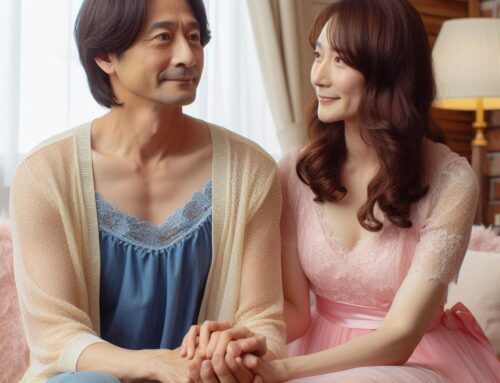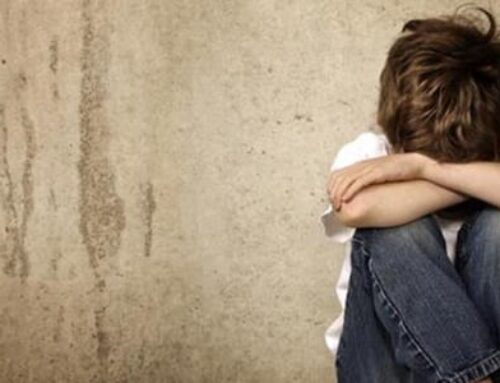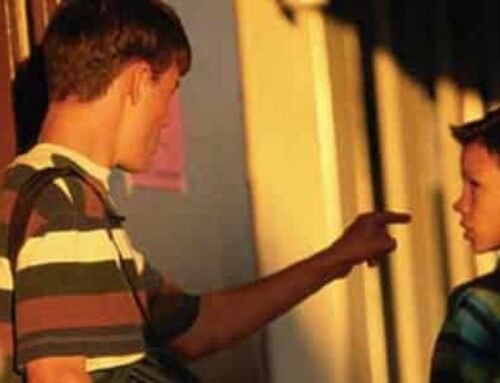Theoretical knowledge and professional experience may have helped me with the first ‘task’ but did not help me with the next one. In fact, I think it hindered me.
While referring to the tasks, I hope I am not giving the impression that I, or anyone else, works through them in numerical order. Because I didn’t and I doubt that anyone would or could. It is only with reflection that I can pick out a memory here or isolate a feeling there that is suggestive of where I was emotionally or what I was ‘doing’ at the time.
For me, the whole experience felt a bit like being out in a strong storm. Sometimes I would be off my feet, getting tossed about or being crashed to the ground. Sometimes the wind would stop and there would be a lull when I could look around and feel in a sort of control, only to have the ground whipped away again and be left tumbling over and over into a black void.
My family were super and we were all mutually supportive, talking about anything and everything when and where we chose to. I never felt things were left unsaid ‘in case it upset me’ and we laughed and cried together at our memories. Looking back, I think this is what I ‘chose to do’ – my way of ‘helping’ them and, yes, it helped me as well. In the wider world though, I was adept at recognising the pain that others were feeling and would automatically seek to help and support them, instead of hearing their need to offer it to me. It is sometimes difficult for people to express their feelings and I would sense their embarrassment at their offering of condolences. I am amazed when I remember replying, “Thank you but it’s all right.” It was so easy to ‘keep that professional hat on’, to keep calm and in control; to pack my deeper feelings into a different box. It was easy and a lot less painful and by keeping that ‘hat’ on, I sometimes got a rest. I was so, so tired of being battered by my emotions. I liked that public face – I liked being ‘all right’.
But it was not so easy when I was alone. I was very often not ‘all right’ and I knew in my head that I had to face the pain. Eventually, of course, the box would not stay closed and I was forced to let the ‘hat’ slip. And it hurt so much. I still remember the depths of that pain and how frightened I was. I felt out of control, because I had no answers for it, in fact, I didn’t even know the questions. I struggled to keep hold of the ‘me’ that I knew while all the time I was being or becoming somebody I didn’t know and I was frightened for the future.
I do consider myself lucky not to have had some of the feelings that, as a counsellor, people would talk of having but I think it is appropriate that I mention them here. They are all very real feelings and are best acknowledged. I believe that sometimes, we seek to deny our feelings by not giving them their name, so I will name them.
Anger is such a strong emotion and can take many forms. Some people have talked of their anger at the deceased; for not seeing the doctor, for doing that particular job, for not stopping drinking and sometimes, just for dying, by doing so, leaving a partner, son, daughter to cope alone. The anger can be turned outwards and we look for someone or something to blame. We become angry with the doctor, the nurse, with the ambulance that didn’t arrive in time, with the deceased’s employers who insisted on the overtime, even with other mourners. We can be angry with people for not giving us answers. “Why did it happen?” is a question asked so many times. Sometimes, the anger can be at oneself, for not reminding the deceased to do something, or for wanting a job finished or just for ‘not being there’ to help or stop it happening. I had no need for anger at others, they had all done their jobs well, even though it must have been difficult for them and to be angry at David was out of the question. He would not have died had he had a choice.
Feelings of anger can also be mixed in with other feelings and can often lead to or be fed by feelings of guilt. Self-blame is a difficult cloak to wear. People have told me they have blamed themselves for so many things; for not learning resuscitation, for cooking chips, for causing a row, for staying out late, for not giving medicine on time, for not stopping smoking etc. So very many reasons and so very hard to put down and leave behind.
Another feeling that for me, is linked with the sadness, is regret. David and I were looking forward to another phase of our lives together. Of being retired, of enjoying days spent together or apart, with family and friends, at home and abroad. I feel sad that he has missed them and I especially regret that while I still have those days of a kind, they are different and I’m not sharing them with him.
I think the last emotion I would like to mention is that of a feeling of relief. So many times someone has told me of their feelings of relief when a person has died, often after a prolonged illness or at the end of a harsh and difficult relationship. Some have felt guilty for having such feelings. I always sought to reassure them that whatever feelings arise for them during this time of overload, are the feelings to be feeling. Each of us will grieve in our own individual way and have our own individual feelings.
David died very suddenly and there was no place for relief but I can say I was pleased for him that it was the way it was. He would have been an unhappy patient and would have hated to be an invalid. He might have chosen it for himself but he wouldn’t have chosen it for his family. I believe he would have liked to prepare us better.
Reference: Grief Counselling and Grief Therapy by J William Worden





